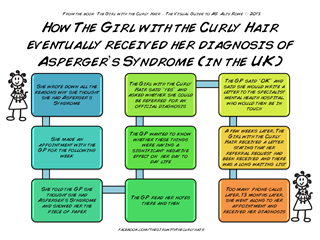Hi there,
I've wondered about whether I might be autistic for a while but got put off by a child psychologist (who does ASD assessments!) who told me that I can't possibly be because previous psychotherapy had helped. Now someone I'm working with has suggested it to me again. It does feel like it fits, but when I do the standard AQ-10 screening tool I only get 5 (although I come out with at least 35 on the full AQ test). I can self-refer to my local NHS assessment service but I'm worried that if my AQ-10 is negative they won't give me a second glance. Does anyone have any thoughts?
Thanks,
Liz


